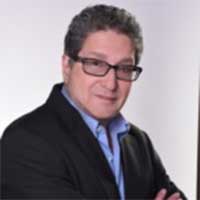Castro's interference in Venezuela

By: Pedro Corzo - 20/08/2024
Guest columnist.Share:
The totalitarian system that Cuba suffers from and that threatens Venezuela if Nicolas Maduro and his hitmen are not removed from the Government has always been strongly attracted to the land of the liberator.
The tragedy that Venezuela is suffering is the responsibility of Hugo Chávez and Fidel Castro. Both, with the support of figureheads like Maduro, colluded to rob the country of freedom and wealth, and impose Castro-Chavismo throughout the hemisphere.
The two revolutions were always different, because there was a giant, a democrat, Rómulo Betancourt, who had the political courage to face the siren songs that Fidel Castro sang and that enchanted the Ulysses aspirants.
After the hubbub of the first days with problems, shocks and contradictions, Venezuela took the democratic course, Cuba marched towards totalitarianism
From the beginning, Pax Fidelista prevailed. Castroism was enthroned, which mutated into an aggressive and expansionist absolutism that corresponded with the nature of the leader and the ideology he said he professed.
In Venezuela, many good people with dissimilar thoughts were willing to work for the country's progress and were seduced by the promises of building a better society, even if the tools were chants of machine guns and terrorism, advised by Che Guevara.
These men and women, in their eagerness to make their dreams come true, did not realize that they were subjecting themselves to a foreign project in exchange for a bit of shrapnel and a rear guard in which part of the training consisted of learning to lose independence of judgment.
On March 13, 1967, Fidel Castro said in the old presidential palace in Havana: "We proclaim once again our sympathy and our solidarity without any hesitation with the guerrillas who fight in the mountains of El Bachiller, with the combatants who in the cities defy the repression and fury of tyranny. Castro described the legitimately elected government of President Raúl Leoni as tyranny, not those of Maduro and Chávez.
July 26, 1960: Cuba's charge d'affaires in Caracas, named León Antich, led a demonstration that stoned the capital's cathedral. Antich was later accused of distributing $400,000 to promote a conspiracy against President Rómulo Betancourt.
1961: Venezuelan authorities seize 500 Czech-made machine guns along with Castro-communist propaganda.
1962: a batch of weapons with the emblem of the Cuban Armed Forces were confiscated on the beaches of the state of Falcón.
November 11, 1963: in the Paraguaná peninsula the authorities seized three tons of weapons that came from Cuba. Months later, Belgian weapons with the emblem of the Armed Forces of the Island were seized from Venezuelan guerrillas.
June 24, 1966: an expeditionary group made up of about 40 people, thirteen individuals of Cuban nationality, among them General Arnaldo Ochoa Sánchez, who would be shot by Castro years later, and General Leopoldo Cintas Frías—both were later heads of the Cuban occupation forces in Angola—disembarked through Tucacas. Specialists affirm that Castro himself said goodbye to the expedition members upon their departure from Cuba.
May 8, 1967: the Cuban fishing boat named Sierra takes an invading force made up of Cubans and Venezuelans to the vicinity of Machurucuto and Boca de Uchire. Antonio Briones Montoto died in the confrontation and two other Cuban soldiers were captured: Manuel Gil Castellanos and Pedro Cabrera Torres.
1969: around thirty Venezuelans trained at Punto Cero, Cuba, land in Venezuela to overthrow the Government of Rafael Calderas. They were all killed by the Army.
Despite all the blood spilled by fire and shrapnel, the Castro project in Venezuela did not prosper. It is true that after the disappearance of presidents Rómulo Betancourt and Raúl Leoni, Venezuelan leadership in the fight against Castro totalitarianism practically disappeared. Even so, the Venezuelan nation, its leaders and the Armed Forces repudiated a political model that was against their democratic convictions.
The arrival of Hugo Chávez to the Government radically changed the situation. Venezuela is currently the most faithful lackey of Castroism and the best interpreter of insular totalitarianism in the project of destabilizing the democracies of the hemisphere to the point of destruction. For this reason, Castro's supporters oppose Nicolas Maduro leaving power.
«The opinions published herein are the sole responsibility of its author».